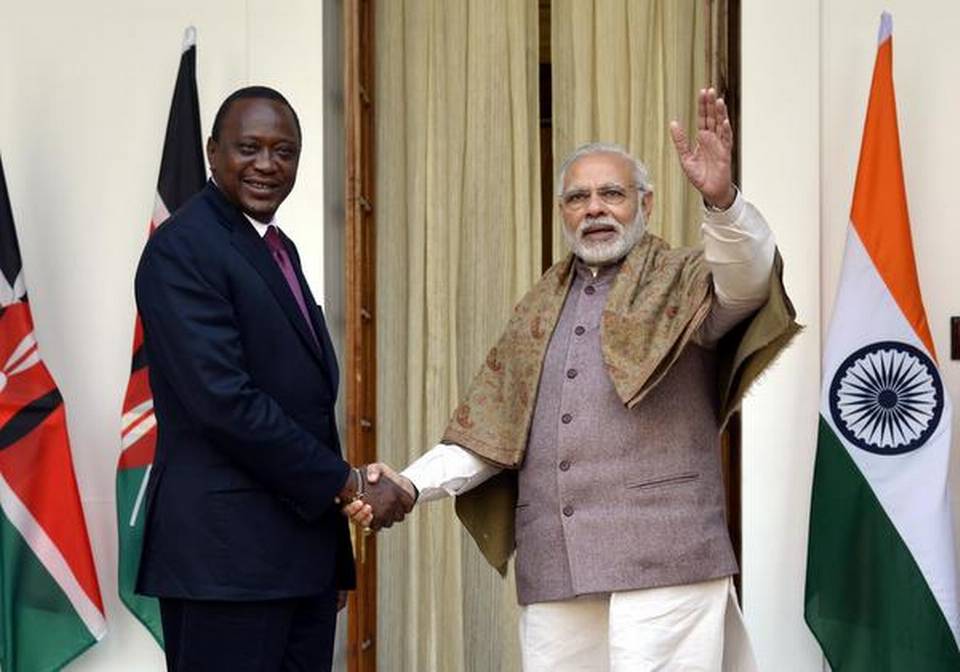Share this
The scramble for diaspora billions
By Patrick Alushula
Kenyans living abroad are no longer just sending money home for food. They are increasingly making serious investments, and banks are taking notice.
The latest data from the Central Bank of Kenya (CBK) shows that last year, they sent home over Sh163 billion ($1.6 billion)
To put this amount in perspective, it is significant enough to fund the Ministry of Defence and National Intelligence Service for an entire financial year — and leave Sh38.9 billion in change.
This amount, according to World Bank’s Migration and Remittances Fact Book 2016, made Kenya the third-highest recipient of diaspora remittances, after Nigeria (Sh2.04 trillion) and Ghana (Sh200 billion).
This figure is now in the radar of financial service providers. From just $338.3 million (Sh34.2 billion at current exchange rates) in 2004, diaspora remittances have increased more than four times to Sh163 billion.
By the end of May last year, these remittances were at Sh62.5 billion. This year, by May, the figure stood at Sh71.5 billion, a growth of 14.4 per cent. Going by month-on-month growth, 2016’s full-year remittances could easily surpass last year’s.
In May alone, Sh14.6 billion — a new record — was sent home. To reap the benefits of this money, financial institutions have been repackaging themselves in bid to control how the more than 600,000 Kenyans living abroad send money back home.
In April, Tier I lender Co-operative Bank launched a 24-hour service centre exclusively devoted to handling the banking needs of diaspora customers. The decision came against a backdrop of Sh45 billion of the Sh163 billion being transacted through the lender.
The bank’s director of retail and business banking, Maurice Matumo, said the centre would extend its services to offering financial advice on how invest in real estate and stock markets while abroad.
“As one of the banks handling large inflows of diaspora remittances, we were feeling the pressure to expand the capacity to handle the surging volumes,” said Mr Matumo, adding that the centre would also help Kenyans living abroad access banking services with less hassle.
New markets To bolster its presence, it has partnered with UAE Exchange, a Middle East-based company that serves 32 countries. With UAE controlling about 6.8 per cent of the $20 billion (Sh2 trillion) transactions per year, Co-op Bank hopes to ride on these numbers.
“Currently, we serve about 20,000 customers, and this contributes about 8 per cent of the bank’s revenue. We are eyeing momentous growth as we enter new markets,” said Matumo. African Banking Corporation (ABC Bank) has also been involved in making it easier for those living abroad to spend their money in Kenya. The ABC diaspora current account offers customers higher interest rates the more they save, and gives them access to free investment advice through ABC Capital, a sister company.
It targets customers interested in mortgages and real estate investments. In March last year, the bank inked a deal with New York-based international money transfer service firm Trans-Fast to tap into Kenyans in 108 countries in America, Europe, Asia, Africa and Australia.
KCB, which boasts the highest asset base in Eastern Africa, got into diaspora banking in mid-2012, launching in two major markets — the US and UK. The bank said it took the decision to ensure that Kenyans abroad enjoy banking just like local customers.
The lender has mortgages and investment products to help those abroad build houses or invest at home. It finances up to 90 per cent for residential houses and up to 80 per cent for commercial ones.
It also helps depositors invest in Treasury Bills and buy shares at the Nairobi Securities Exchange. The Government’s decision, through the 2015 Diaspora Policy, to recognise Kenyans living abroad as key in realising Vision 2030 has also boosted banks.
The Ministry of Foreign Affairs and International Trade re-evaluated its policies to make it easier for Kenyans in foreign countries to bring their wealth back home. This has made engagements with the diaspora much easier for individuals and organisations, eliminating risks to businesses. Riding on this, Co-op Bank has established links with foreign but Kenyan-owned Saccos in countries such as the US, UK and Ireland. Similar Saccos also exist in Qatar and Dubai.
KCB also opened agency banking in Baltimore and Maryland in the US to support banking services in 2012. This was followed by a Sh10 billion deal with a US Sacco in 2014 to help those in the diaspora get more involved to their investments at home.
Today, most banks in Kenya offer diaspora services, and are now competing with first movers like Western Union and MoneyGram in offering money transfer services.
Lenders are banking their growth in this segment on their re-positioning and the finding that a majority of Kenyans in the diaspora are aged between 21 and 50, and earn between Sh100,000 and Sh2 million a month. Such amounts, when brought home, boost foreign exchange inflows to support the country’s balance of payments and stabilise the shilling. But before the money is invested, financial institutions can use it to lend and earn interest, as well as boost their stability.
Pooled resources At the centre of most of the transactions are Saccos. Kenyans abroad are increasingly forming Saccos to pool their resources and boost their bargaining power.
Among the issues they champion for are cash transfers at reduced costs and reliable acquisition of property while abroad.
Banks are rising to the occasion by offering end-to-end packages, such as real estate administration and writing of wills to reduce losses or conflicts in case of death. As more banks roll out services for the diaspora, it is expected that remittances from abroad will not just increase, but also dictate the pace of activity in sectors like real estate and the stock market.
According to UAE Exchange’s regional head for Africa business, Unni Krishnan, many people who are moving to Middle East and other parts of the world will keep remittances rising. “Initially, people were sending money [home] for spending. Now, they are moving to saving and investing, so transaction volumes keep growing,” he said.
Source: http://www.standardmedia.co.ke/





















